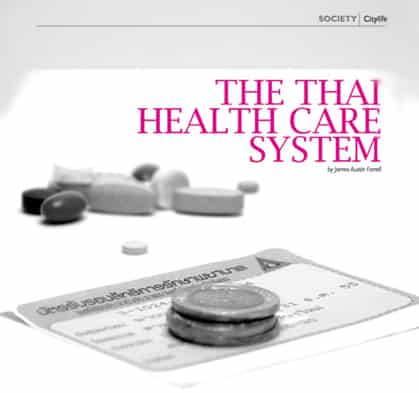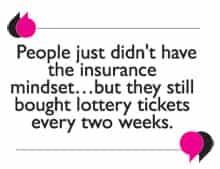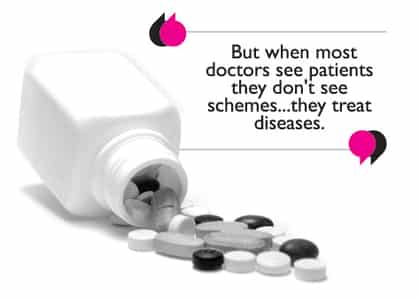
Over the last 30 years Thailand’s health care system has expanded to cover all Thai nationals in any part of the country for relatively little cost or even for free. Health care centres and hospitals now reach the remotest parts of the country rendering the days of shamanic rituals as a healing process all but unheard of Nevertheless, the present health care system in Thailand has more than its fair share of detractors: from those that receive benefits from the system, and many others who work within the system.
Ass. Prof. Nisit Wattanatchariya, Chiang Mai University Faculty of Medicine, and Deputy Hospital Director of Maharaj Nakorn Chiang Mai (Suan Dok) outlined for Citylife Thailand’s health care system, its transformation over the last three decades and its present state. Nisit explained that SS (Social Security) covers about 15% (10,000,000) of Thai people for their health care. Those people in the SS scheme pay up to 5% of their earnings, and no more than 750 baht a month for full health coverage. People claiming SS are those in full-time taxable employment. Nisit explained that drugs, treatments, surgeries, and care are fully covered except for drugs that don’t come under the ‘S List’ (“important drugs list”). Newer drugs, or drugs currently being researched, are not free. People covered under Social Security will choose one hospital where they will be treated (main contractor) and should a patient have to be admitted in an emergency anywhere else the contracted hospital will pay the bills to the emergency hospital. The SS is having its 20th anniversary this year.
“30-40 years ago the government introduced the CSMBS (Civil Servant Medical Benefits) scheme. This was Thailand’s first medical insurance scheme. It was only for civil servants, the government sector earned very little compared to other sectors so the health insurance was a benefit to attract people to government jobs,” says Nisit. CSMBS covers (in government hospitals) about 10% of people in Thailand, he adds, and though only 1.23 million work as civil servants in Thailand the scheme covers their immediate families which adds up to about 6 million. The doctor says that today the civil servant’s medical benefits are still the best in Thailand, except if you have very substantial private insurance.
The majority of Thai people will fall under the UC (Universal Coverage) scheme (formerly the 30 baht scheme), which will cover almost all costs except for certain items such as canes, glasses and crutches, says the doctor, and only at government hospitals. 75% of Thai people will claim UC coverage if they choose, many can of course take out private insurance policies. “The government tries to cover everyone in Thailand,” says Nisit, and explains that in the past many health care schemes tried and failed to cover “vulnerable groups”: the elderly, children under 12 and those living under the poverty line. “Different government, different scheme,” says the doctor, “but certain schemes in the past didn’t cover everybody; they weren’t accessible to all people.” Before UC, he explains, Thailand had a ‘Health Card Project’ where farmers not under the poverty line paid 500 baht a year for health insurance and those below the poverty line would be given a ‘below income card’ which could be used for medical care. “With their seasonal income the families were expected to buy the card, but the scheme was unsuccessful. People just didn’t have the insurance mindset…but they still bought lottery tickets every two weeks.” In 2001 during the Thaksin era the government implemented a universal health care coverage scheme though each patient would have to (co)-pay 30 baht for every visit to the hospital. The 30 baht scheme has now gone through transformations to become the universal health care scheme. Controversially, it is free, which means no co-payment.

On the other end of the scale are the private insurance holders who can pick and choose where they want to be treated. “Premium service will give you a private room, no waiting, good service,” says Nisit. Insurance companies such as AIA and BUPA offer various health care plans for those with enough money to pay. People with enough money for private health care are generally content with the treatment and services they receive, the doctor says. The biggest criticism from within Thailand’s citizens concerning their health care comes from those paying for Social Security. Their plaint is simple: ‘Why do we pay and receive the same benefits, or worse, when UC is free?’
“The SS programme has almost stood still for years,” says Nisit in answer to this question, “it used to be better than the UC. Now the UC is close, and in some aspects better, especially in aspects of serious illnesses where ‘crucial drugs’ have to be prescribed for the patient.” He explains that how the administration works for both sectors of health care effects what the people receive. In the case of crucial drugs, the UC sector worked “fast and close with the ‘Special Drug Committee,” says Nisit, whereas the SS weren’t as efficient. But generally, Nisit says, the treatment for both plans is the same.
He adds that the SS administration are simply not working hard enough, though he also adds that with Thailand’s social security there are other bonus aspects such as pension, handicap allowance, pregnancy benefits. “But when most doctors see patients they don’t see schemes,” he says, “they treat diseases.” Nevertheless other doctors, he says, will have to follow hospital policy when treating a patient, which could in some cases mean patients receiving different types of care from the same doctor depending on their coverage.
Funding for the SS comes from workers, employers and 2.5% from the government, while the UC is funded by the National Health Budget. The doctor explains that while people on SS are complaining of standards of health care, in government hospitals the standard of care is dropping due to increased workload of hospital staff and a growing numbers of patients. “Now we have waiting lists,” he says and compares Thailand to the UK’s NHS (National Health Service). “We studied the EU community and their health care systems and wanted to bring that to Thailand,” he says, though adds that in many western countries some “responsibility” must come from the patient. Due to Thailand’s UC system now being completely free there is an “over utilisation” of the health care system, he says. Because it’s free, and drugs are free, doctors and nurses are “overburdened and overworked”.

“This is a controversial subject,” says Nisit. “The 30 baht scheme made people share costs for treatment, but some people said it was too much for the very poor.” The politicians on the other hand, he says, make decisions depending on the popularity they’ll receive. “They get the credit,” he says. “The number of government hospitals the last 30 years hasn’t changed, and the numbers of doctors and nurses hasn’t increased much. So the service is overwhelmed,” he says. The government hospitals, he explains, have been called ‘Robin Hood’ hospitals in light of their taking money from the rich – who don’t use their UC insurance and pay for private treatment, so the hospital can put this money into treating the poor. UC at Marahaj is continually over budget, he says, and so they have to acquire funds from elsewhere. “This is how we survive,” he says, but adds, “in general, this system, is working.”
Doctor of Conscience
Dr. Sidapan Yutabootr, a pediatrician from the Hang Dong government hospital explains that doctors working in government hospitals receive less pay. In the past she says government hospital doctors would receive about a tenth of what a private doctor could earn, although the government has lately invested money into the government health scheme to encourage their doctors not to jump ship and work in a private hospital. “In my opinion the service at government hospitals is better,” she says, “government hospital workers have more compassion, they are not working as a business.” She explains that private doctors are sometimes encouraged to give their patients an excess of drugs or treatment. “As a private doctor you must always be thinking about profit,” she says, “I feel more comfortable doing what I do.” Nevertheless, she also adds that some private doctors might have a turn of conscience, she says that she’s known doctors who have told their patients to buy their drugs in the much cheaper drug stores.
The treatment, she says, echoing Dr. Nisit, is more or less the same never mind which scheme you belong to. “For me it wouldn’t matter what scheme a patient has when they come to me, everyone will receive the same treatment.” And even though private health care at a private hospital may have returns of better rooms and better drugs she remains adamant that government hospitals are of a better standard than private hospitals. “Suan Dok (Maharaj) is the best hospital in Chiang Mai,” she contends, “but the waiting time can be quite long,” she explains. “The reason for government hospitals being better than private hospitals is mostly because of governmental ‘quality control’ and ‘community participation'”.
“I feel overworked,” says Dr. Sidapan, “we all do.” She adds that if patients had to ‘co-pay’ then the system would not be so overloaded. “It may make people consider when they go to hospital. So often people just throw the drugs away. They don’t always need treatment by a doctor. And if people had to pay just a little, they might take better care of their health, eat well, exercise, not drink and smoke so much.”
“But I love my job,” she says, and in spite of the long hours and burden of being overworked she says, “I always wanted to be a doctor, since I was a kid. I don’t think I could do anything else. I like helping people.”
